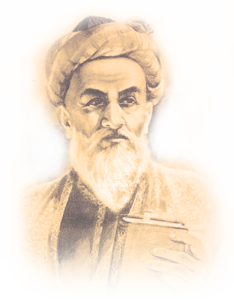SHARE WITH FRIENDS:
Abu Ali Ibn Sina
Abu Ali al-Husayn ibn Abdullah ibn al-Hasan ibn Ali (980.8, Afshana village - 1037.18.6. Hamadan, Iran) is a great Central Asian encyclopedic scientist who made a great contribution to the development of world science. Known in the West as Avicenna.
Ibn Sina's father, Abdullah, was from Balkh and moved to Bukhara during the reign of the Samanid emir Noah ibn Mansur (967-997), where he was appointed finance officer in the village of Khurmaysan. He married a girl named Sitora in the village of Afshona and had two sons. The eldest of his sons was Husayn (Ibn Sina), the youngest was Mahmud.
When Hussein was 5 years old, Ibn Sina's family moved to the capital, Bukhara, to study. At the age of 10, Ibn Sina mastered the lessons of the Qur'an and literature. At the same time, he is also engaged in arithmetic and algebra, and is fluent in Arabic language and literature. Ibn Sina's first teacher in the field of science was Abu Abdullah al-Natili. Because he was popularly known as a judge and philosopher, his father Ibn Sina gave him a discipleship.
In the hands of Notili, the scholar studied logic, handasa, and astronomy, and surpassed his master in some philosophical matters. Seeing Ibn Sina's intellect, his teacher instructed his father not to engage him in anything other than science. After that, the father created all the conditions for the son to learn science and deepen his knowledge. Abu Ali read tirelessly and began to study various fields of knowledge. He studied music, optics, chemistry, jurisprudence, especially medicine, and began to develop rapidly in this science.
Another physician from Bukhara, Abu Mansur al-Hasan ibn Nuh al-Qumri, played an important role in Ibn Sina's mastery of medicine. Ibn Sina took a medicine lesson from him and learned many secrets of this science. Qumri became much older during this period and died in 999.
